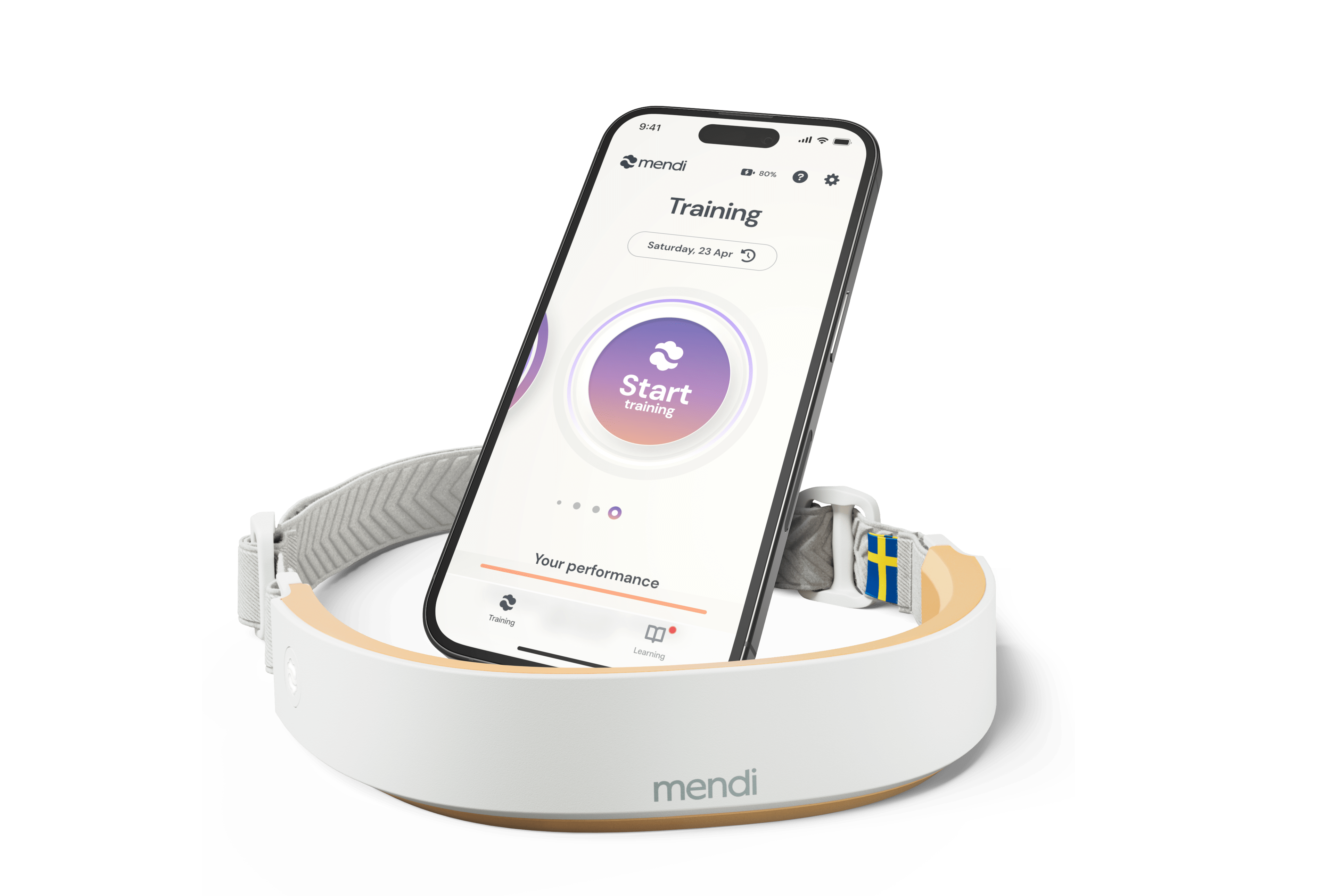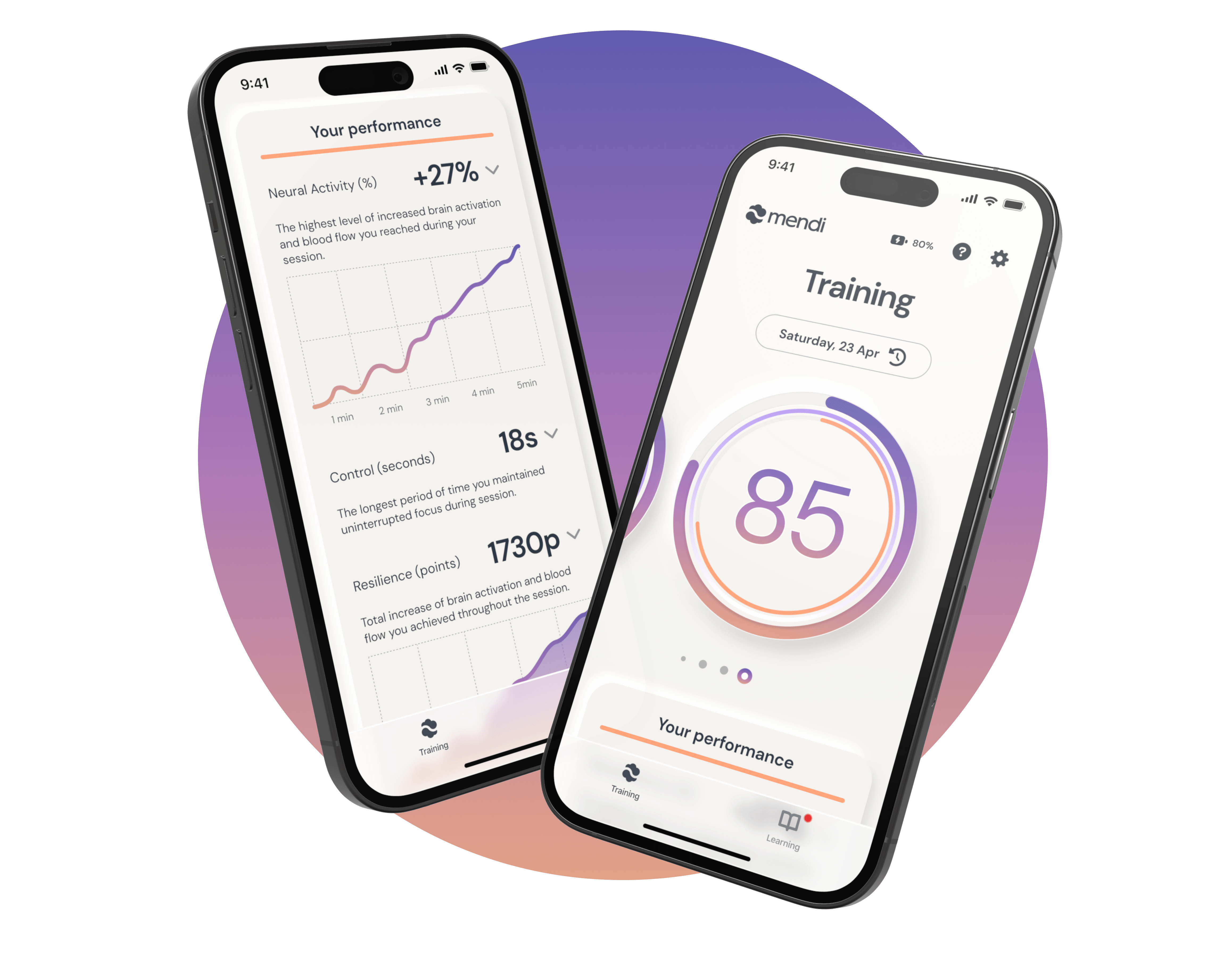First Time In India
Mendi -
Better Your Brain Health
First Time In India
mendi -
better your brain health
Build Focus
Train Your Brain
Enhance Mental Resilience
Better Sleep
No side effects
Easy to use
Build Focus
Train Your Brain
Better Sleep
Enhance Mental Resilience
No side effects
Easy to use
Better Sleep


Enhance Mental Resilience
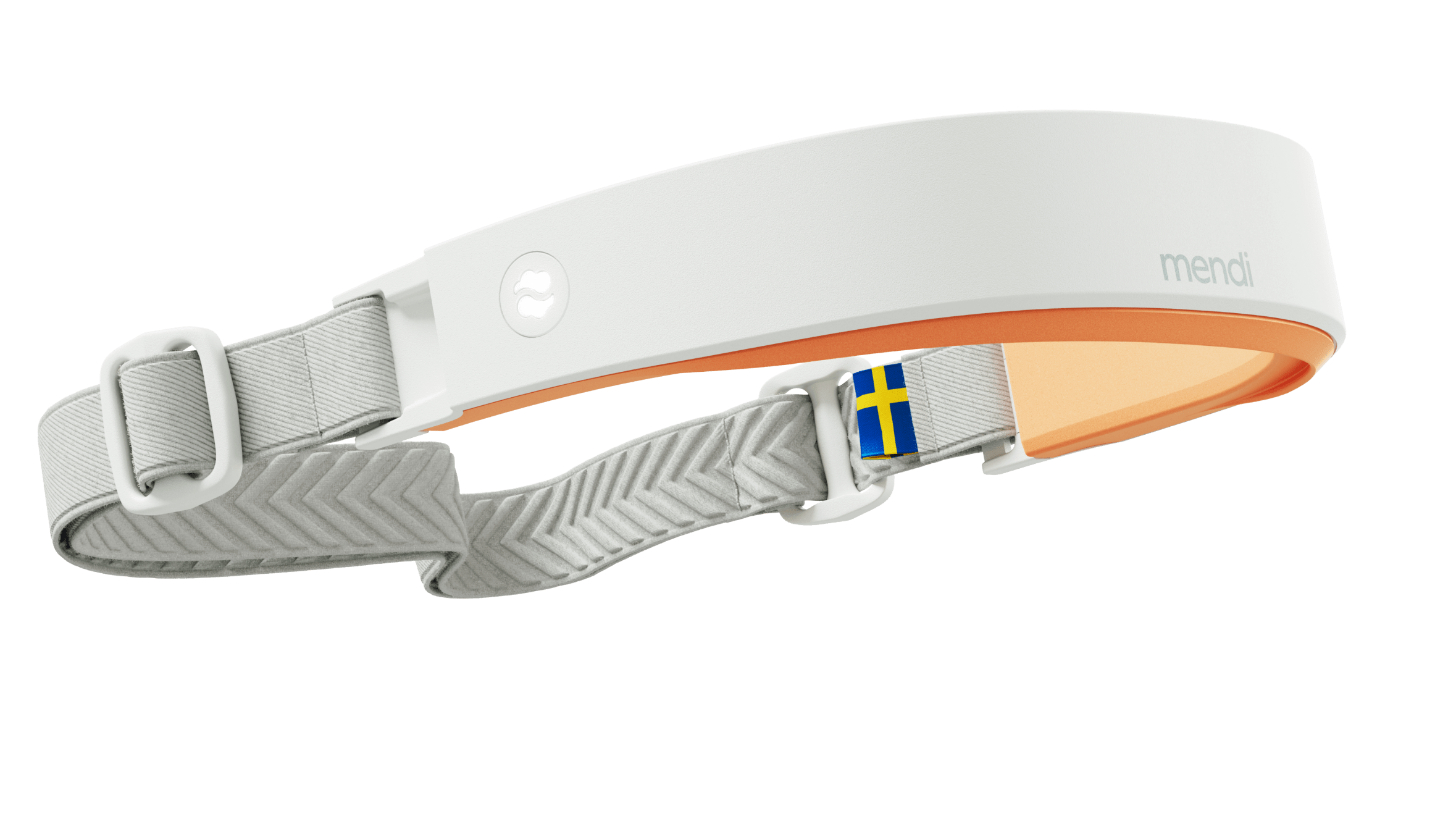
no side effect, easy to use wearable head band!
How Mendi works
The headband is used to measure your brain activity in the prefrontal cortex. It automatically connects to Mendi’s app.
fNIRS technology detects increased blood flow in the brain by using optical sensors. This way of measuring brain activity is non-invasive and completely harmless.
Your brain activity is reflected in the Mendi app by the movement of the ball. The steeper the upward curve, the more blood flow is being detected in your prefrontal cortex.
To achieve optimal results when training we advise our users to train at least 3 times per week, 10 minutes per session.
Making Mendi a habit is a sure way to kickstart your journey towards improved brain health.

Score Overview

Customized Training

Brain Health Advice
Testimonials
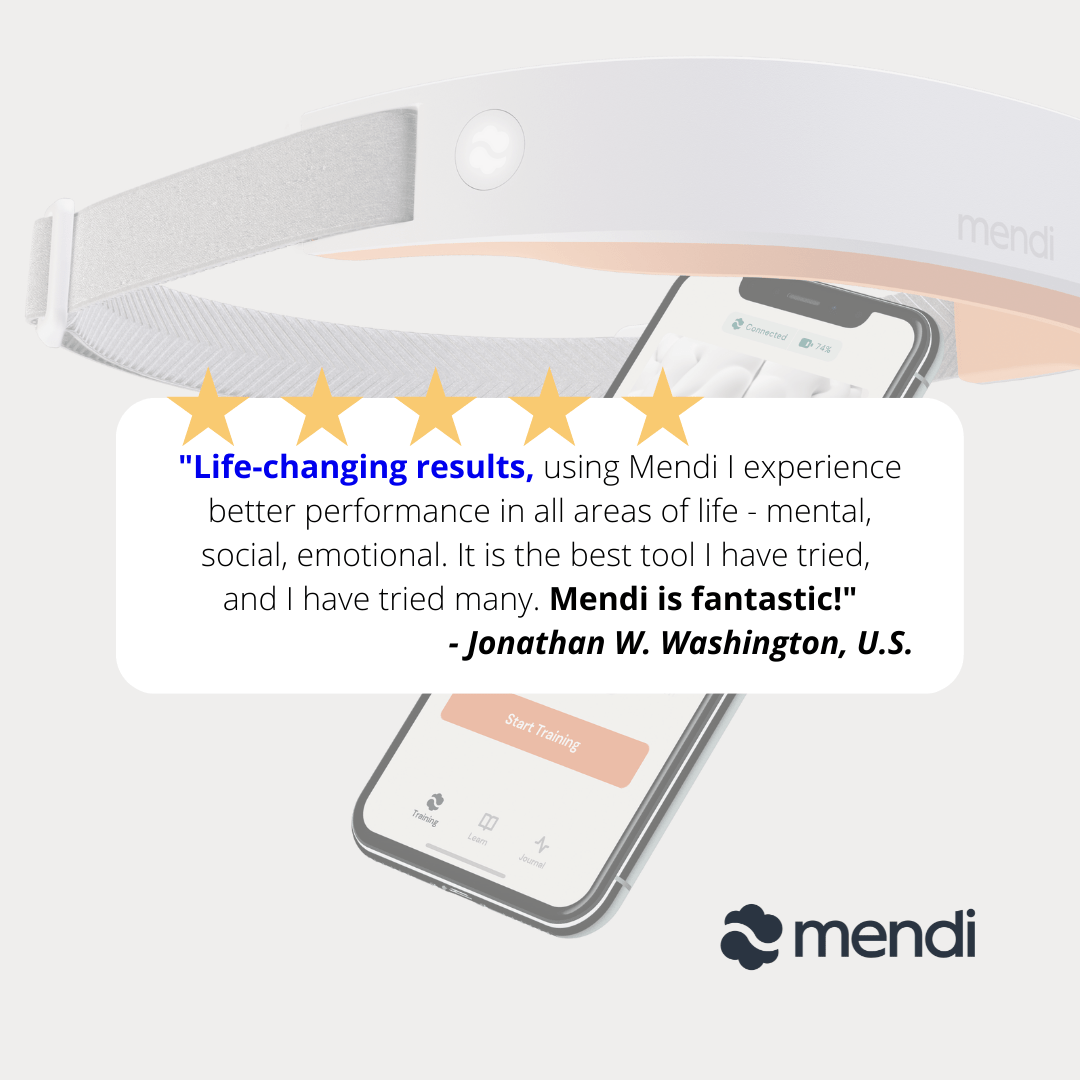
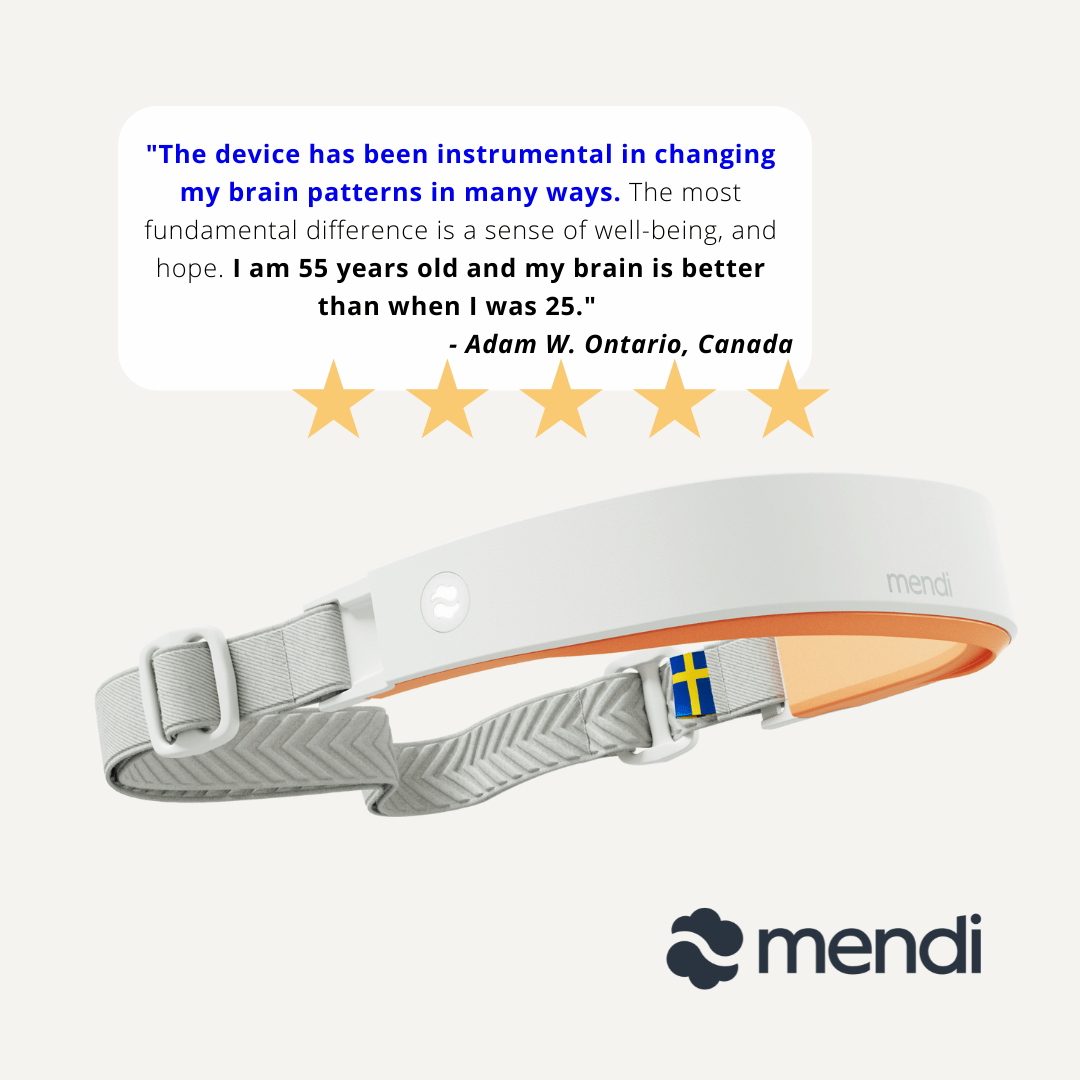
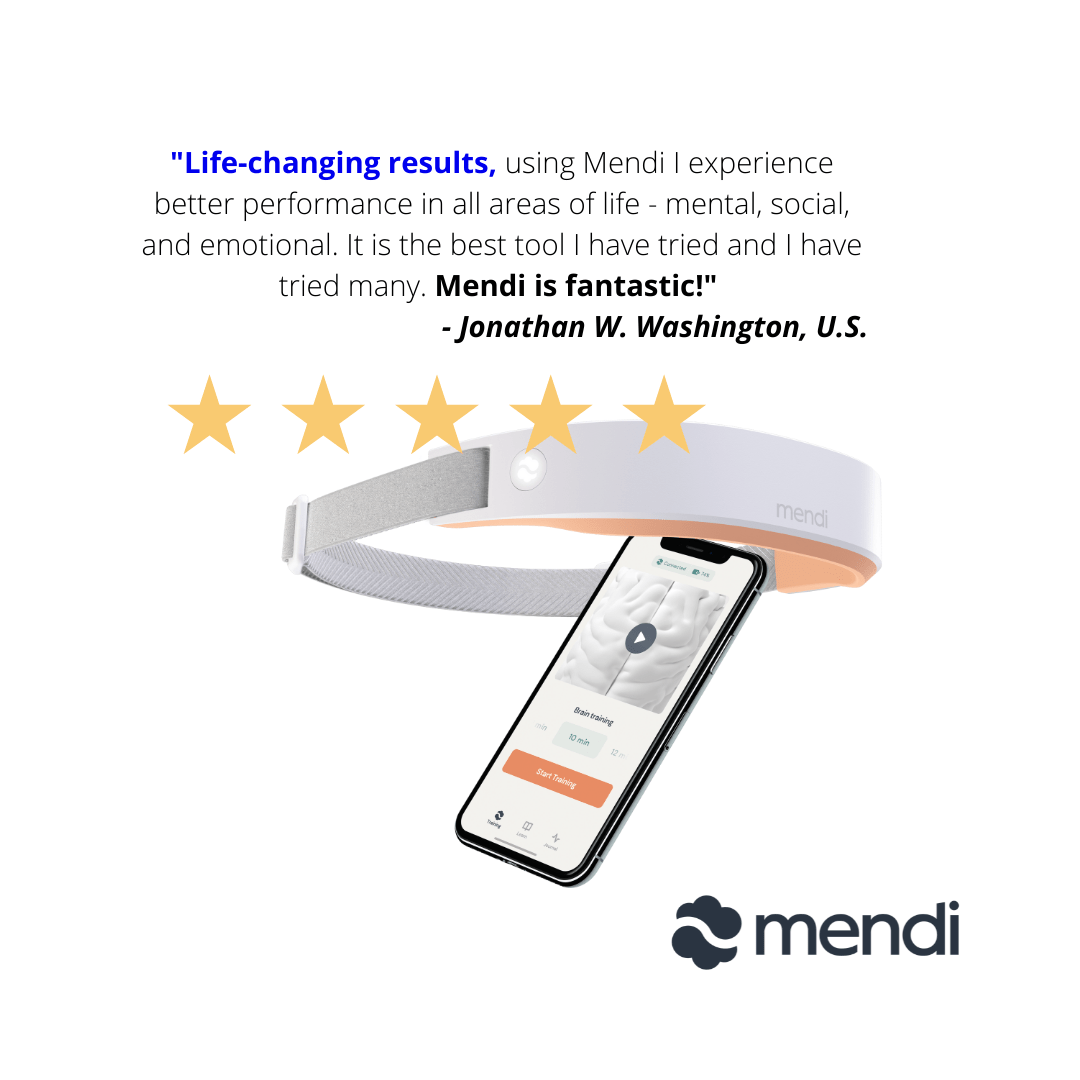
Any Queries, Reach Out
